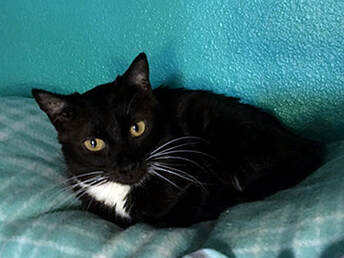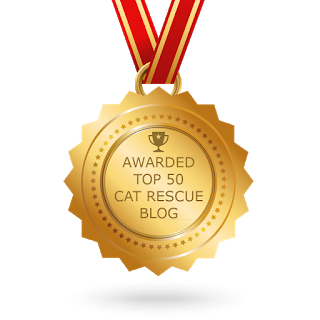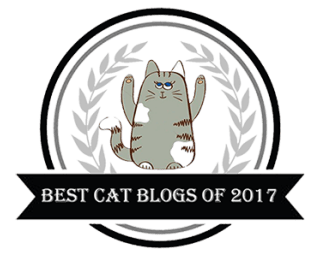
Has your senior kitty been wolfing down her food but losing weight? Has her fur lost its luster? Is she overly active, crying at night, and flooding her litter box?
If so, she may be suffering from feline hyperthyroidism.
Please review the seven Questions and Answers below to educate yourself more fully about this condition.
1. What are the thyroid glands? Located on either side of your cat’s trachea or windpipe, these two tiny glands produce the hormones that affect many of her body’s functions. Controlling the rate at which your cat burns energy is of utmost importance when it comes to hyperthyroidism.
2. What is behind feline hyperthyroidism? A tumor growing on one (or both) of her thyroid glands causes her body to produce too much thyroid hormone, which, in turn, causes her body to burn energy too quickly.
3. What are its symptoms? You’ve already noticed them! Since her body’s burning energy too rapidly, she’ll always be hungry and, in spite of her increased food consumption, she’ll still be losing weight. She’ll drink water and urinate too much. Her behavior will also be affected, resulting in such changes as increased activity, restlessness, and even aggression. Her fur will start looking both greasy and messy.
4. How is this condition diagnosed? Your vet will perform a blood test that measures the levels of thyroid hormones in your cat’s blood. If the levels are high, she’s deemed to be hyperthyroid.
5. What are the available treatments? The three most common forms of treatment for feline hyperthyroidism (all three have benefits as well as risks) are medication, radioactive iodine therapy and surgery.
Medication: The most common medication used today is methimazole (trade name Tapazole or Felimazole). It decreases the level of thyroid hormone in your cat’s blood and is available as a pill or as a gel that you apply to her skin. Most cats tolerate methimazole fairly well, with minimal side effects. While it appears to be the least expensive option, the costs do add up over time.
Radioactive iodine (I-131) therapy: Considered to be the “gold standard” of treatment, not every vet clinic offers this treatment and it’s fairly expensive. BUT! Once done, your cat is cured.
Surgery: Although removing the affected thyroid gland is an option, it might not resolve the issue. There may be tumor cells in other parts of your cat’s body that will continue to overproduce thyroid hormone or she may no longer produce enough of the hormone and have to remain on medication for the rest of her life.
6. Is there a prescription diet for hyperthyroid cats? Yes. It’s designed to be TOO low in iodine, a chemical that helps the thyroid glands produce hormones. But it remains a controversial subject among most veterinarians for two reasons: has it been adequately studied, and what are the effects the LACK of iodine may have on a cat’s overall health?
7. What are the complications of feline hyperthyroidism? Included in the various possible complications are high blood pressure, difficulty breathing and heart problems, but it can also disguise other conditions such as kidney disease.
Feline hyperthyroidism CAN be managed. All that’s required is teamwork: TLC and commitment on your part coupled with the ongoing advice and support of a vet you trust.









 RSS Feed
RSS Feed